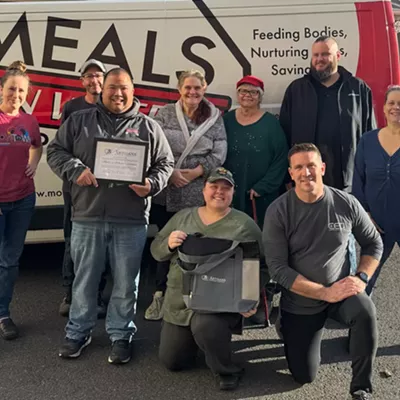It is 10 am on a Wednesday during a staff meeting at the YWCA Confidential Safe Shelter. A call comes in informing us that a woman and her small child are in need of shelter. She is being transported from a local hospital in a cab, which is being escorted by a Spokane police officer.
Hours earlier, Mary (her name has been changed to ensure her safety) was taken to the hospital by her husband for treatment of three broken fingers. She first told the nursing staff that the injuries were from an accidental fall. However, the staff became suspicious when the injuries didn’t match her story, and the behavior of her very concerned husband seemed overbearing.
Fortunately, the nursing staff was able to separate her from her abusive spouse long enough to provide her an opportunity to disclose what really happened. Mary told the medical staff how her husband had held her captive for the past three days, torturing her into confessing an affair she didn’t have. His jealousy and need to control her every move turned violent and he proceeded to bend and break her fingers until she told him what he wanted to hear.
Stories like this are not uncommon to those who work the front lines of domestic violence. Law enforcement, medical professionals, courts and the YWCA Alternatives to Domestic Violence Program staff hear these stories on a regular basis. We know that one in four women in Spokane will experience some type of domestic violence in their lifetime. In fact, Spokane law enforcement agencies respond to over 15,000 calls for services due to domestic violence, and the Alternatives to Domestic Violence Program serves more than 11,000 victims and their children each year.
Much of what we have learned about domestic violence in our 30-plus years of service can be found in Mary’s story. The following are some truths and some signs and symptoms of which we should all be aware:
Domestic violence victims come from all walks of life and socioeconomic backgrounds. Mary holds a bachelors degree, and she and her husband had a combined family income of over $80,000 a year. She was raised in a traditional nuclear family and waited until her late 20s to marry. In fact, she thought she had married her soul mate.
Isolation is a controlling factor in domestic violence. Often victims are separated from family and friends and not let out of the house alone, as their abusers fear that they may find a way to escape. In Mary’s case, her husband’s unjustified jealousy kept her isolated. If she wanted to keep herself safe in the relationship, she had to cut off almost all contact with her family.
Physical violence often begins during pregnancy. Research tells us that pregnant women are more likely to be beaten than women who are not pregnant. It wasn’t until Mary became pregnant with her child that the controlling behavior of her husband turned to physical violence.
The YWCA Alternatives to Domestic Violence Program offers an array of services for victims and their children. We provide shelter and housing, legal services, counseling for victims and children who have witnessed the violence and career planning and financial advocacy. Through all of these services, Mary was able to create a safety plan, get started on legal proceedings and reunite with her family for support.
Domestic violence is a complex issue with no simple answers, but it is simple for each of us to play a role in ending it.
How You Can Help
• Become educated on the issues of domestic violence or schedule a training for a group, organization or business.
• Donate your time or money to help end the violence.
• If you know someone who is being abused, be supportive, listen, and provide helpful information, such as the number to our 24-hour help line (326-CALL).
For more information on how to help a friend, make a donation or schedule an educational presentation, please call (509) 789-9297.
















